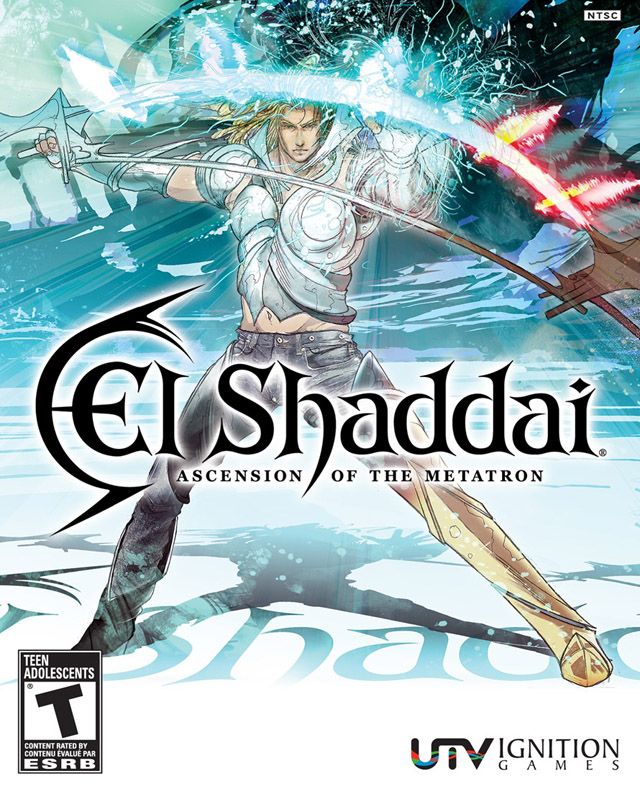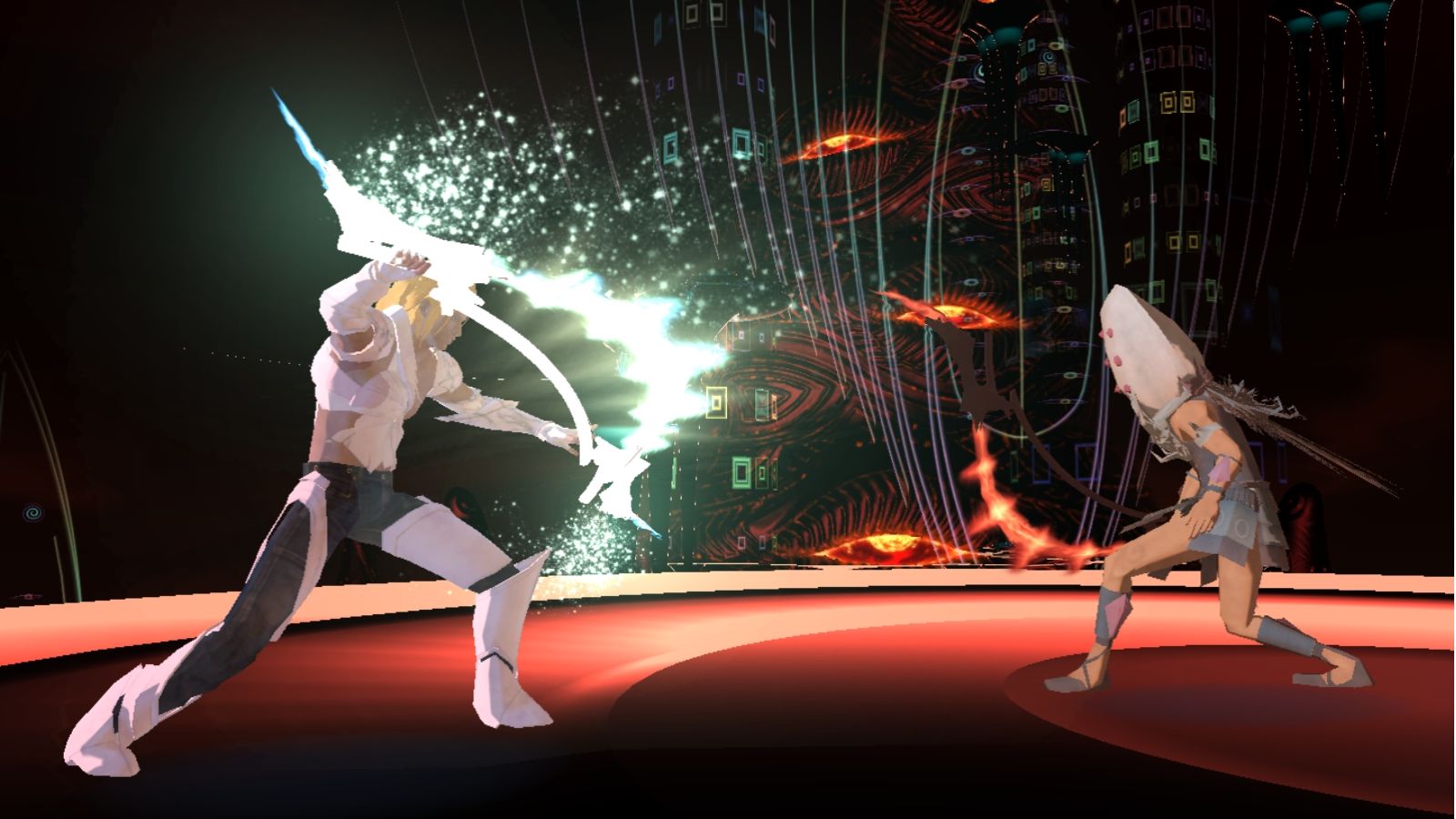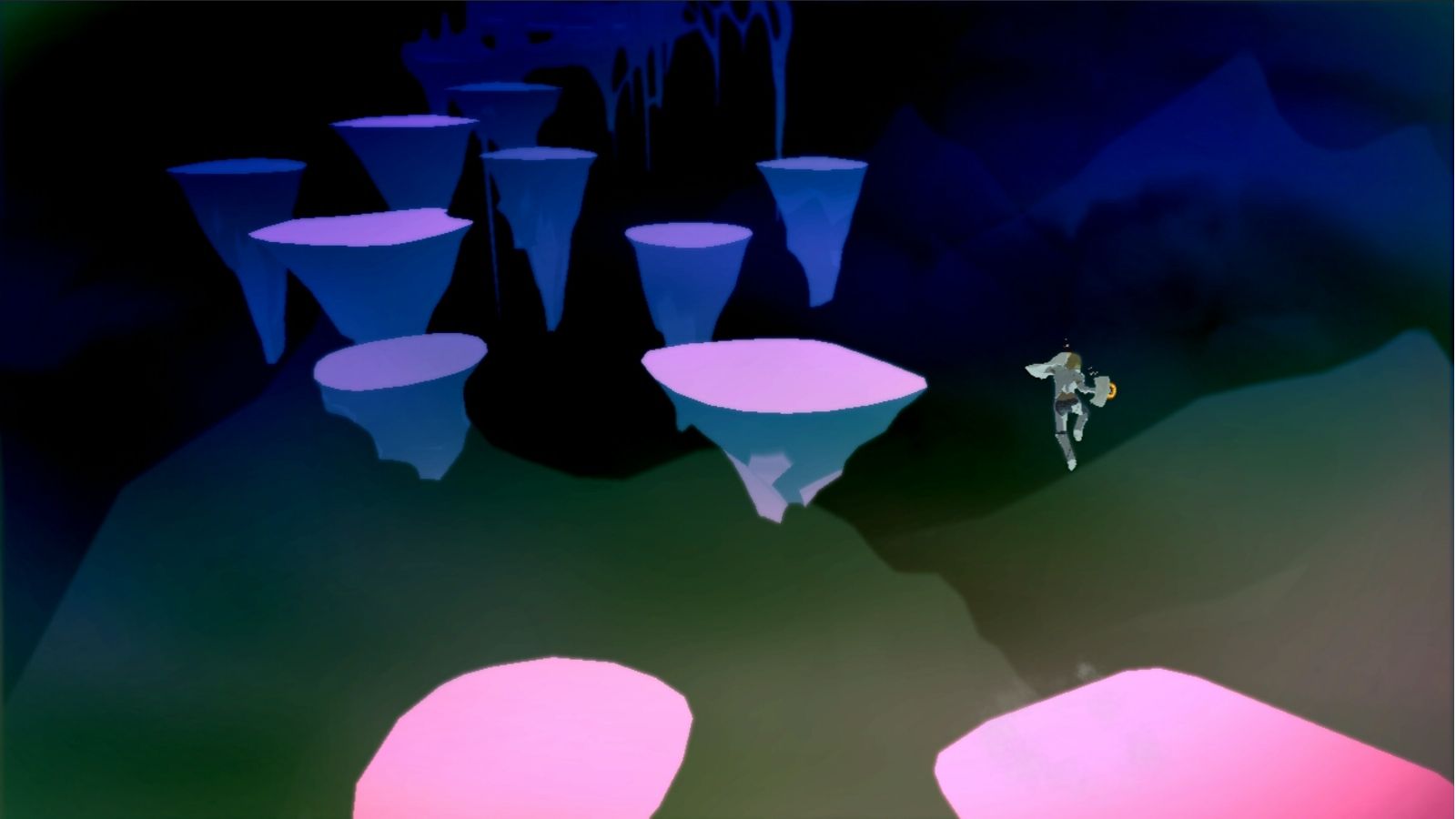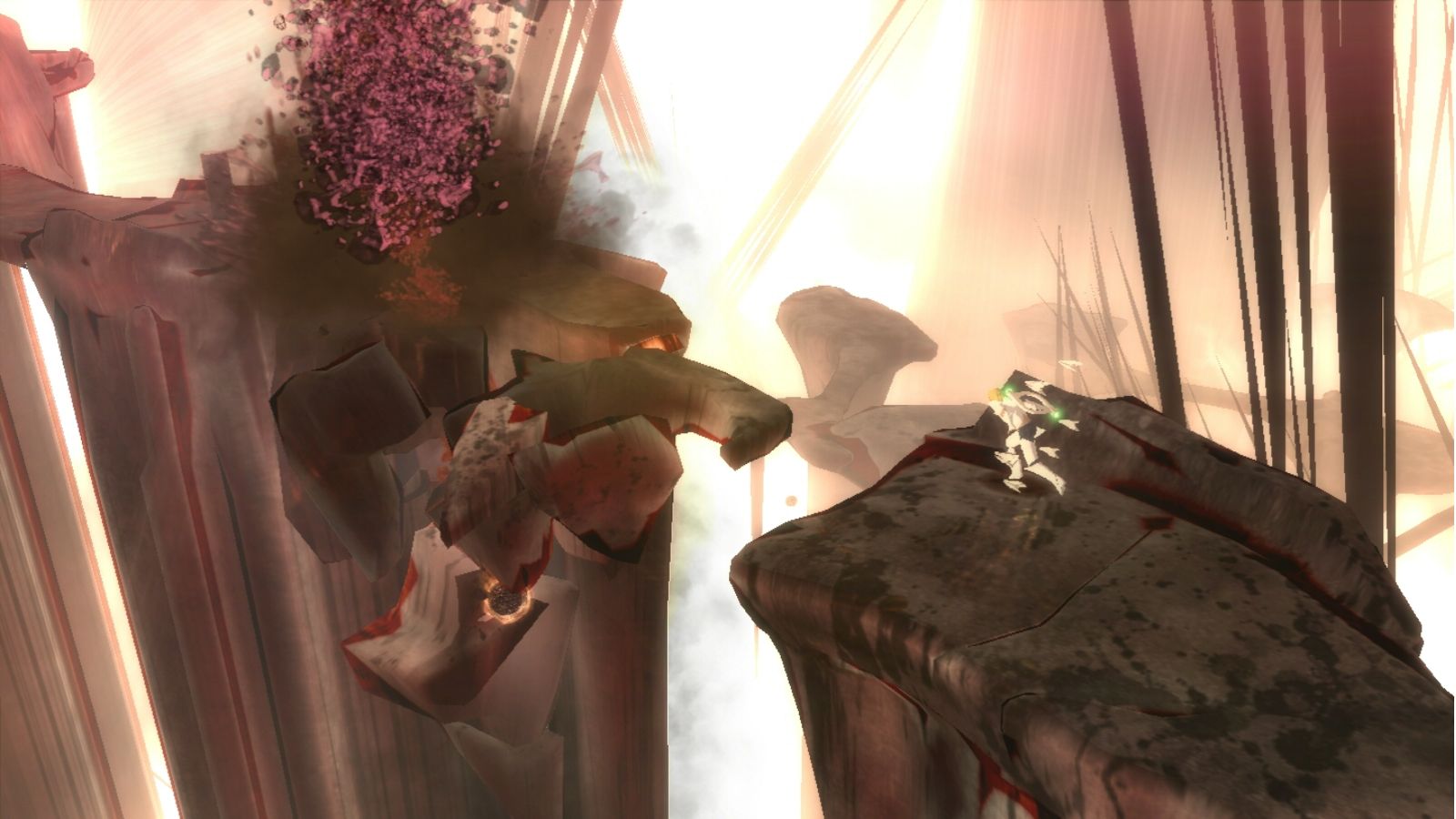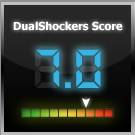Nothing captures a moment or feeling like artistic expression. It's a tool that's been used throughout human history to represent the way the world is perceived through the artist's eyes. A facet of humanity that has evolved through different media which abducts our imagination and breaths a new sense of understanding into a different world. Although some may argue that games aren't an artistic medium, I would clearly beg to differ with the promise of artistic representation that El Shaddai: Ascension of the Metatron has instilled. And, on the surface, El Shaddai is a visual orgasm which, at times, will leave you astonished. But what it visually inspires in evocative landscapes it lacks in just about everything else.
Inspired by the Deuterocanonical Book of Enoch, El Shaddai follows the story of Enoch – a priest – seeking to capture seven fallen angels – or Grigori - to prevent a great flood from destroying mankind. In his quest to capture these angels, he is helped by Lucifel (who, I'm sure, you have an idea of who he is) and the four archangels Gabriel, Uriel, Michael, and Raphael. Provided with a set of shiny white armor, denim jeans, and flip-flops, Enoch travels through radiant celestial environments to accomplish his mission for the salvation of humanity.
While the story sounds exquisitely unique, and it is, it doesn't offer much substance around what you're plainly presented with. The plot is intricate in the sense of where it stems, and carries a dramatic tale which left me intrigued; but how it was told, from a gameplay perspective, was a bit lackluster. Enoch, as mentioned before, takes charge of capturing seven fallen angels and saving the world from an egregious flood destined to eradicate all life. While the idea of the story is abundant in imaginative construct, the game itself feels like it's missing something, although you clearly know what's happening. The lack of character development makes the story, and the game, feel excruciatingly dull. This is because character development is omitted, in the traditional sense. Once a character is introduced, they are completely forgotten about moments later due to the lack of character growth. This also holds true for the game's protagonist, Enoch.
Enoch is a lot like Link from The Legend of Zelda. Yes, they're both blond, they're both handy with a weapon, and have the responsibility of saving their worlds; but I didn't mean it in that way. See, like Link, Enoch is a mute. Okay, maybe he does spew out a single line of dialogue in the entire game, but it's not enough to where you know the character. For someone who has a lot to say with his quill, Enoch is not quite the conversationalist. He'll constantly utter the words “No problem. Everything's fine,” as he falls in battle and returns with a vengeance after you've abused your controller; but, other than that, you don't hear much from him. Instead, the bland atmosphere of dialogue is congested with the voice of Lucifel, who is constantly providing God with updates on Enoch's progress via his cell phone.
Interestingly enough, however, I didn't find myself caring to attach myself to Enoch's character. I preferred his silence, after a while, only because I didn't find the need to involve myself with his character. Rather, in the colloquially bland emptiness of the worlds that Enoch visits, I occupied my mind with questions: Why doesn't God just snap his fingers and get this done? Why is Enoch fighting? Who taught him Kung-Fu? Why does Lucifel get away with talking to God the way he does? Why are the archangels geese?
What El Shaddai lacks in the fleshing of its characters, it makes up for artistically. From the very beginning your eyes will firmly hold its gaze on the beautiful backdrops that imbues the screen. Bewitching domains that I have come to appreciate from both an artistic and gameplay perspective. The game takes place in an incredible-looking world that is refreshing to stare at, and even easier to lose yourself in. The abstractly-furnished scenery defies conventional explanation, showcasing a plethora of artistic ingenuity. It adds a lot to the dense worlds that Enoch visits, as the absence of life is abundant through the entire game, as even the music isn't a strong feat.
The soundtrack for the game isn't what I was expecting with the production value of the visuals – and I don't mean that in a good way. After two hours, I muted the game's music, popped in my headphones until some dialogue took place, and rocked out to the sounds of Tool and Sevendust. I wasn't missing much with the omission of the game's sounds, as it really didn't add any essence to the experience, per se. I found myself sighing in relief when I would hear a cellphone ring and heard Lucifel's voice crowding the still air, or when one of the fallen angels would spontaneously appear to challenge my evolving skills in mastering the simplistic, yet challenging, controls in an attempt to belittle Enoch with slander.
The controls are as condensed as they can be, in the sense of variety. You have one button assigned for your attacks, one button for jumping, one button for purifying your weapons, and, lastly, one button for blocking. While I am a fan of a more versatile control-scheme that allows me to compose a symphony of different attacks, the rather basic controls for El Shaddai worked to the game's advantage. With three weapons (the arch, the veil, and the gale) to choose from through the entire game, one had to carefully master, time, and rationally plan the attacks executed. Because the repertoire of moves is limited, combat is based more on positioning and timing than figuring out which attack you should use to beat your enemies to nothing.
Different moves are performed based on how you hit it (tap against hold), if you use a modifier (which launches your foes high into the air), or whether you're jumping like a lunatic or firmly standing on the ground. Familiarly, both the block and jump buttons make up your defensive tactics. Dodging is also possible for your “variety” of moves. And, while this may sound simple and childish, it is easy to pick up and there is complexity involved in this entire system which I initially realized through progression. It may seem as if I am praising the controls, but there are factors that make combat in this game extremely frustrating. Its hindrance stems from the lack of camera controls but exemplified by the long animation and the cheap shots that you will, without a single doubt, acquaint yourself with.
The main problem comes from the fact that you're constantly locked into attack animations while your enemy is introducing his weapon to your face. You spend most of the time hopping around like a moron trying, at times, to desperately stay away from your enemies. The ranged weapon – the gale – is great for keeping your foes at bay, but it spends most of the time shooting at invisible walls due to a tragic lack of target lock. One shot in at the boss, and your weapon frantically not only begins to blindly shoot at the wall, it locks you into shooting – which can't be disrupted – for several seconds as your life begins to flash before your eyes.
Bosses are pretty much the same, with minor differences (there is an exception, which I won't ruin here). They have the same moves and offer slight variety in their attacks, which can be a let down to those of us looking for a challenge as you're pretty much exposed to the entire process each time you fight another boss. This deducts from the difficulty (which doesn't evolve throughout the entire game), and adds to the predictability of the game.
And that's my biggest issue with El Shaddai – its predictability. There is not a single element of surprise – aside from the impromptu boss battles – in the game. I easily knew when to be greeted by a handful of enemies due to the change in the size of the flooring, knew what to expect after two boss battles, and even knew when I was entering a new area that would introduce me to some 2D platforming. Ah...the platforming...
A solid platformer is one way on how I would definitely define this game. Is it a bad thing? No. Essentially because this is the area in where the game, in my personal opinion, shined. It wasn't the combat; it wasn't the repetitive boss battles; it wasn't staring at Enoch's gorgeous blond hair. It was the brilliant platforming that secreted from El Shaddai that made it stand out above all else. I'm not a fan of platformers; in fact, I hate them. Coming from the NES era, I grew up with the genre that has always instilled a sense of fear in me. It makes my hands sweat, my heart beat faster than usual, and my body shake at times. But what El Shaddai demonstrated is 2D platforming at its finest – and for me to applaud this aspect of the game says a lot.
The 2D canvases are littered with gorgeous visuals, as you'd expect. The random dialogue in the background provides a comforting distraction to the knee-buckling jumps Enoch has to land, as you make your way to the end of the stage. While you are brought back to life by Lucifel if you fall to your doom (as he has the ability to control time with a snap of his fingers), each jump will see you clenching your controller in fear for your life. It's a rewarding experience that I found myself enjoying each time I completed these 2D masterpieces.
Then, there are the 3D platforming levels. This is where my patience and sanity were tested. The fundamental flaw? The static camera is mostly positioned at an odd angle. Combine this with the overall lack of camera control and abstract visuals (although gorgeous, it can sometimes be a nuisance when added with this part of the game), and you are pretty much platforming without any sense of perception. God knows the amount of times I fell to my death only to be brought back by Lucifel's saving finger-snap. It is a part of the game which you will come across many times, as every single level in the game requires platforming.
El Shaddai, although a fresh and welcoming IP, suffered from too many variables which I felt hindered the game's success, in my opinion. Yes, it's a beautiful game with art that will leave you marveling your TV screen. It offers challenging yet entertaining platforming when the camera angles are just right. But the game itself is plagued with too many things that didn't allow me to fully enjoy its fruits. The combat system, although simplistically intuitive, wasn't attractive and became increasingly dull as enemies didn't change in the strategy, look, or difficulty. It became a predictable chore that left me begging for the end which, I must admit, saddened me as I was expecting a far deeper experience.
Linearity, I feel, was a culprit in this game. Already placed in a world populated by nothing, Enoch's goal was simply to get from point A to point B in every stage. Considering that the worlds were luscious in imagination and artistry, one was hoping to add an element of exploration to give players a more profound sense of adventure and substance. If the player wasn't forced to fight, which allocated time to the game, it wouldn't be too much of a hassle to run through the game, and that's where El Shaddai failed to capture me. It didn't offer anything but a redundant experience that was subtly changed with the migration to the next world. I had no attachment to any of the characters, which is something, I feel, gives a player emotional fidelity towards a game.
Characters play a vital role in any medium of storytelling. If a connection of some sort can't be established between the character(s) of that world and the audience, then the experience is nothing but a fragile moment which will be forever neglected and forgotten. And although El Shaddai shines brilliantly in the comfort of its platforming, the fact that its audience can't establish a foundation of character with Enoch, or the rest of the characters for that matter, will just give it the treatment that mediocre games receive – a forgetful place in our shelves, or a trade-in at GameStop. It's a forgetful experience that, sadly, I wasn't expecting. It's definitely a great game to play if you're absorbed by the abstract art that accompanies the game, or if you're an enthusiast of the platforming genre.
I have no regrets in playing the game, because it was a unique experience, though the gameplay limitations will shun most of you, which is why I won't widely recommend the game. It's not a great game, but it isn't an awful game either. It's a game that you will play and toss to the side to never again be inserted in your consoles, unless you're a trophy/achievement aficionado. Although it wasn't a critical success in some areas, El Shaddai was a great attempt at new experience. If this is a franchise that's to be considered in the future by Ignition, I sincerely hope that they take note of what this game lacked and what it did so well in order to make the next one a true monumental masterpiece.
-
Title: El Shaddai: Ascension of the Metatron
- Platform Reviewed: PlayStation 3
- Developer: Ignition Tokyo
- Publisher: Ignition Entertainment
- Release Date: August 16,2011
- MSRP: $59.99
- Review Copy Info: A copy of this title was provided to DualShockers, Inc. by the publisher for the purpose of this review.

